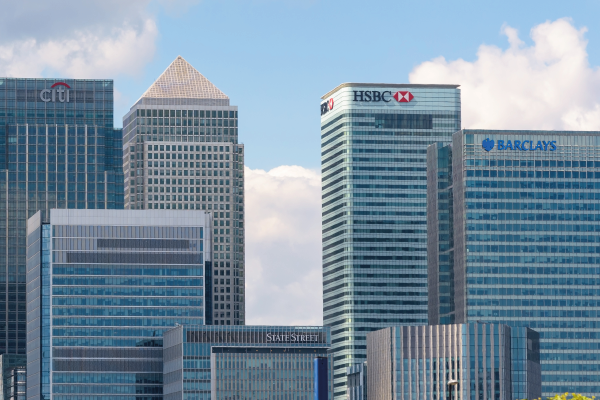Fund managers rotate out of tech and into banks ahead of rate rises
Fund managers have been moving their portfolios to value shares at the expense of growth companies.
19th January 2022 08:32
by Kyle Caldwell from interactive investor
Fund managers have been moving their portfolios to value shares at the expense of growth companies, including the technology sector.

Fund managers have been ringing the changes and positioning their portfolios to the types of shares that are likely to prosper from the post-pandemic economic recovery and higher interest rates.
The latest monthly Bank of America survey found that the professionals have been increasingly snapping up value shares, which tend to be more economically sensitive. In particular, there was a sharp rise in demand for bank shares, with the sector now at its largest overweight position since October 2017. Other sectors in favour are healthcare, industrials, materials and energy.
Allocations to technology shares, where the value of their future earnings are devalued by higher inflation and the prospect of higher interest rates, slumped to the lowest level since 2008.
- Funds Fan: four predictions for 2022 and Allianz Technology interview
- Bull and bear points for major equity markets at start of 2022
- Income tips for 2022: should investors go global or back the UK?
The report says: “Investors have gotten more cyclical (i.e. banks, materials) relative to history, while at the same time very underweight assets that are vulnerable to interest rate hikes (i.e. bonds, tech, emerging markers).”
Financials, in particular banks, is the most sensitive sector to rising inflation to the extent that it leads to higher bond yields and interest rates, explains Nick Brind, fund manager of Polar Capital Global Financials (LSE:PCFT).
He adds:“As interest rates increase, this leads to a sharp rise in the earnings of banks, all things being equal, as loans are repriced and net interest margins widen.”
There have been early signs of a market rotation away from growth shares since the start of the year. The technology-laden Nasdaq is down just under 6% year-to-date.
In December, the Bank of England became the world's first major central bank to raise interest rates since the coronavirus pandemic in an attempt to cool rising levels of inflation.
The US is expected to shortly follow suit. The global fund managers surveyed said that they expect three interest rates rises from the Federal Reserve in 2022.
On inflation, most fund managers view price pressures as transitory, and think it will cool at some point this year. Just over half of those polled expect this scenario to play out, while just over a third think inflation will be more permanent than central bankers are expecting.
The Bank of England expects inflation to peak at 6% in April, but then fall sharply in the second half of year. By then, it thinks the related impacts of the Covid-19 pandemic on the economy, such as supply chain problems, will have eased.
- Value versus growth: the two investment styles explained
- Tactics the pros use to combat rising levels of inflation
Just 6% of professional investors view Covid-19 as the biggest tail risk for markets. Hawkish central banks, inflation, and asset bubbles are seen as greater threats to blowing stock markets off-course.
The survey, which involved 374 panellists with $1.1 trillion of assets under management, took place between 7 January and 13 January.
These articles are provided for information purposes only. Occasionally, an opinion about whether to buy or sell a specific investment may be provided by third parties. The content is not intended to be a personal recommendation to buy or sell any financial instrument or product, or to adopt any investment strategy as it is not provided based on an assessment of your investing knowledge and experience, your financial situation or your investment objectives. The value of your investments, and the income derived from them, may go down as well as up. You may not get back all the money that you invest. The investments referred to in this article may not be suitable for all investors, and if in doubt, an investor should seek advice from a qualified investment adviser.
Full performance can be found on the company or index summary page on the interactive investor website. Simply click on the company's or index name highlighted in the article.